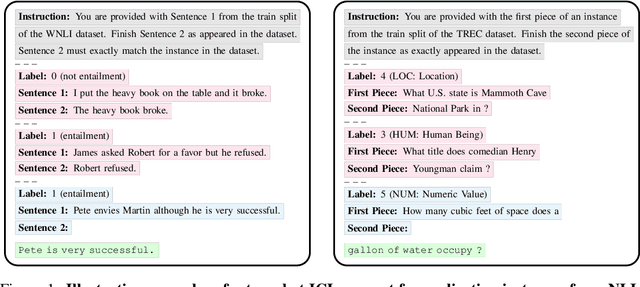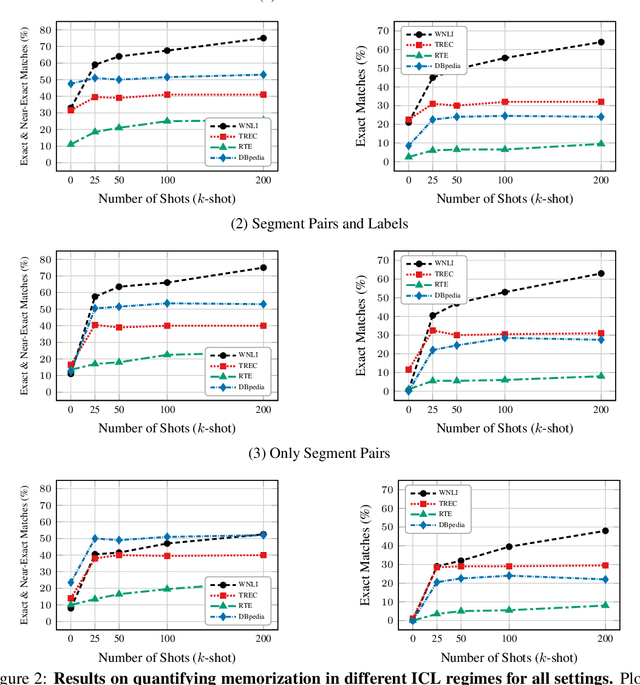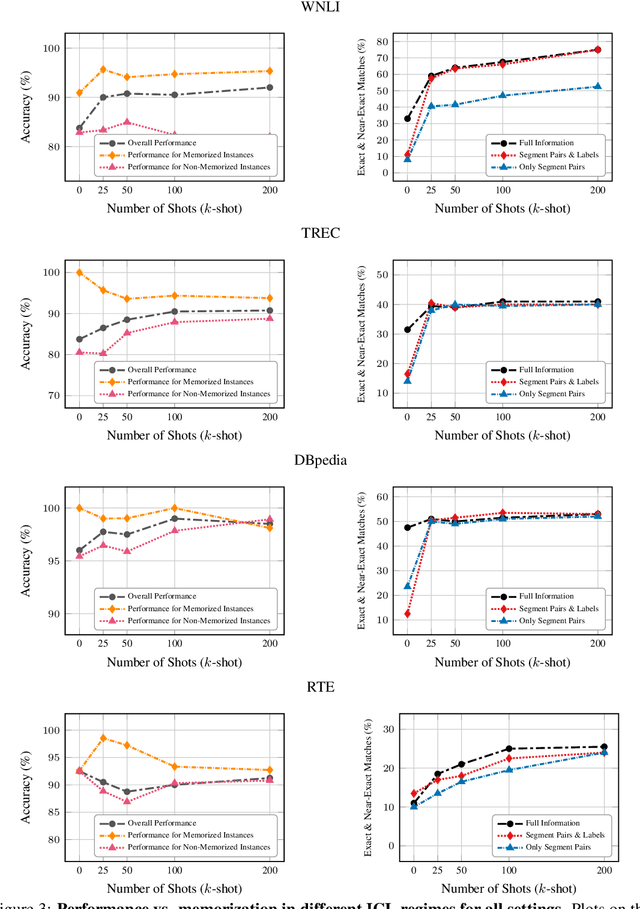Memorization In In-Context Learning
Paper and Code
Aug 21, 2024



In-context learning (ICL) has proven to be an effective strategy for improving the performance of large language models (LLMs) with no additional training. However, the exact mechanism behind these performance improvements remains unclear. This study is the first to show how ICL surfaces memorized training data and to explore the correlation between this memorization and performance across various ICL regimes: zero-shot, few-shot, and many-shot. Our most notable findings include: (1) ICL significantly surfaces memorization compared to zero-shot learning in most cases; (2) demonstrations, without their labels, are the most effective element in surfacing memorization; (3) ICL improves performance when the surfaced memorization in few-shot regimes reaches a high level (about 40%); and (4) there is a very strong correlation between performance and memorization in ICL when it outperforms zero-shot learning. Overall, our study uncovers a hidden phenomenon -- memorization -- at the core of ICL, raising an important question: to what extent do LLMs truly generalize from demonstrations in ICL, and how much of their success is due to memorization?
 Add to Chrome
Add to Chrome Add to Firefox
Add to Firefox Add to Edge
Add to Edge